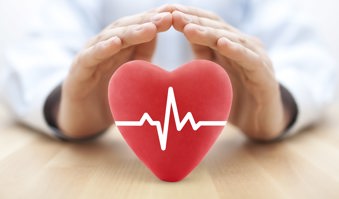The Truth About Sleep Deprivation: How It Can Affect Your Life
 28 Mar, 2023
28 Mar, 2023
Discover the truth about sleep deprivation and its profound effects on daily life. Explore insights into the impact of inadequate sleep on health and well-being.
How sleep deprivation affects the body?
Your body needs 7-8 hours of uninterrupted sleep to function properly. And there is no other way around it!
Don't let sleep deprivation ruin your life This article will help you learn everything you need to know about the dangers of sleep deprivation, including what to do if you're struggling to sleep.
Quick Read Section
- Your physical and emotional health may suffer if you don't get enough sleep. It may make you drowsy, less focused, irritable, and have mood changes.
- Lack of sleep can have a detrimental impact on the central nervous system, which the brain uses to process the information it receives.
- Insufficient sleep can also cause weight gain and less activity and impact the immune system, digestion, and metabolism.
- Poor sleep can also cause wrinkles, dark circles and hastens aging of the skin.
How or when does sleep deprivation occur?
Sleep deprivation occurs as a result of poor sleep habits and not resting for enough time that the body requires to sleep. There are many leading factors that contribute to insufficient sleep such as sleep disorders, poor sleep hygiene, lifestyle habits, and job obligations.
Many a time we voluntarily choose to give up sleep to binge-watch a new series on Netflix or to finish up a project that we have a deadline due on. However, these choices can end up causing inconsistencies in your sleep cycle which can affect your health in the long run.
Work is often the greatest bane to having a good night’s sleep. There are people who get too stressed during sleep because of work, resulting in waking up several times in their sleep. And there are others who work multiple jobs or work overtime which results in lack of sleep. Some job professions also require people to work shifts which makes it hard for the body to get adjusted to a fixed sleep schedule. Sleep cycles can also get disrupted due to sleep disorders and breathing problems caused due to sleep apnea.
Effects that poor sleep has on health
Poor sleep and inconsistency in the sleep cycle at night can increase your risk for sleeping disorders which can have long-term effects on your health. Insomnia, sleep apnea, narcolepsy, and disruptions in the body's circadian rhythm are some of the most common sleep disorders people suffer from.
Look out for these signs of sleep deprivation if you have not been taking rest consistently. The major symptoms of sleep deprivation include drowsiness during the day and reduced focus, increased irritability, and mood swings. In addition, you might also experience exhaustion and fatigue throughout the day. Your thought process also tends to be much slower when you’re sleep deprived.
Chronic sleep loss can even impact how you look. It can cause accelerated aging and dark circles under your eyes over time. Lack of sleep is also associated with a rise in the stress hormone cortisol in your body. This results in the breakdown of collagen, the protein responsible for keeping the skin firm and smooth. The less you sleep, the more wrinkled your skin can get!
Cognitive functions such as memory, concentration, and decision-making can all get affected because of lack of sleep. Excessive sleep deprivation can also result in microsleeps which involves a person dozing off for several minutes and lack of energy throughout the day. Stimulating your mind to awareness by taking a cup of coffee can help push off the fatigue for a while, but not for long. Therefore, you need to make sure that your body is well-rested before heading off to work each day.
How sleep deprivation affects the brain?
Sleep deprivation can negatively affect the functioning of your central nervous system, which is responsible for the processing of information received by the brain. Not sleeping for adequate hours can disrupt the way your brain sends and receives information. As a result, your thoughts tend to become muddled, and you get exhausted easily at work. Focusing on tasks and learning new information can also be taxing as the signals sent by the brain get delayed.
Lack of sleep can also impact your creativity and increase the risks of depression and anxiety. So next time you find yourself suffering from a creative block, just go to sleep!
Can sleep deprivation affect your immune system?
There is a lot that goes on in your body as you sleep soundly at night. This includes the production of antibodies and defense mechanisms that fight against infections caused by bacteria and viruses. Not sleeping enough inhibits the immune system’s process of creating these defensive barriers against diseases, putting your health at risk.
Sleep deprivation also affects your respiratory system, making the body prone to infections such as the flu and the common cold.
What is the effect of sleep deprivation on digestion and metabolism?
Lack of sleep contributes to gaining weight, along with overeating and not exercising. Levels of Leptin and Ghrelin, two hormones that regulate sensations of hunger and fullness, are affected by poor sleep.
Leptin signals to your brain that you have consumed enough food. Without enough sleep, your brain produces less leptin and more of the appetite-stimulating hormone ghrelin. The fluctuation of these hormones may account for late-night overeating or nocturnal snacking.
You might feel too exhausted to exercise if you do not get enough sleep. Reduced physical exercise over time can result in weight gain because you don't burn enough calories. It can also lead to reduced muscle mass and the buildup of unwanted fat in the body.
Are sleep deprivation effects permanent?
Inadequate sleep can have lasting effects on your health and mental well-being. Sleep deprivation can be acute or chronic based on your sleep cycle and habits. Acute sleep deprivation increases your risk of dozing off while driving, which can cause accidents. It can also increase your reaction time towards movement from other vehicles and can result in bouts of microsleep which are extremely dangerous especially while you are driving.
Chronic sleep deprivation is life-threatening to your health. A necessary amount of sleep is required for your body to function normally and not sleeping enough is hazardous to your mental as well as physical health. Depriving your body of sleep for too long is found to increase the risks of suffering from a heart attack, high blood pressure, and other cardiovascular diseases. Insufficient sleep also disrupts the body’s metabolic process and raises the risks of diabetes and obesity. Even the immune system is affected by poor sleep habits which results in abnormalities in hormone levels. Insomniacs and sleep-deprived individuals also suffer from poor mental health as lack of sleep has strong links to mental conditions such as depression, anxiety, and stress.
Sleep deprivation thus can leave permanent effects on your health. Poor sleep habits increase the risk of death and lower the overall quality of life. So, no matter how important the task at hand is, your sleep is much more important and you should not prioritize it less!
Can sleep deprivation effects be reversed?
The only way to undo the effects of sleep deprivation on the body is to start sleeping consistently for 7 to 9 hours every night. But this is often found to be challenging to achieve, especially by people who have been sleep deprived for too long. Reverse the effects of sleep deprivation by practicing good sleep hygiene and resting in healthy sleeping positions.
Follow these tips to maintain a routine sleep cycle:
- Reduce or avoid taking naps during the day as they can result in lack of sleep at night.
- Lessen the intake of caffeine and alcohol in the hours leading to bedtime.
- Go to sleep at a fixed time every night and wake up as well at a fixed time every morning.
- Try not to scroll through your phone or other electronics before sleep as the blue light emitted from these devices can affect your sleep cycle. You can also use blue light filer settings/ apps available on most modern devices for operating devices at night.
- Maintain the same bedtime routine even on weekends or during holidays.
- Do not eat heavy meals just before bedtime. Leave at-least 3 hour gap between your dinner and bedtime.
- Relax yourself before getting into bed by reading a book, taking a hot bath or meditating.
- Take sleep deprivation seriously and accept that it can cause a lot of harm to your health, no matter how much you try to power through it.
- Adjust your bedroom lighting and get comfy pillows and mattresses to help you sleep better. Maintain a room temperature that is comfortable for your body and make sure that you sleep in a silent and dark room.
- If you require a dim light / zero watt light for sleeping, ensure it is red in colour as it mimics the effect of a dark room
- Exercising daily and exposure to sunlight can improve the circadian rhythm of your body. This will help you sleep soundly at night.
- Prioritize your sleep as much as your job. Make sure to set boundaries between your personal, social, and professional life so that it doesn’t get in the way of your rest.
Seek help if you find yourself sleep deprived for more than a week despite your efforts. Doctors can help figure out the cause of your sleep deprivation and suggest remedies to counteract it.
Certain health insurance plans in UAE offer free online teleconsultations for those who seek advice before getting treatment. Reach out to your insurance broker or provider to enquire if your current health insurance policy offers free medical teleconsultations. Consult sleep specialists who will help diagnose the root cause of your sleep deprivation and recommend sleep schedules and positions to help you sleep better at night. The reason you’re not able to get enough sleep at night could also be due to underlying sleep disorders, which doctors can only diagnose.
Having health insurance coverage helps protect you and your loved ones against unexpected medical expenses. When it comes to purchasing health insurance, our team of insurance experts will guide you through every detail and ensure that our insurance quotes match your requirements.
Contact us today for all your health insurance needs!

 Buy Now
Buy Now Online Plans
Online Plans




HAVE A QUERY?